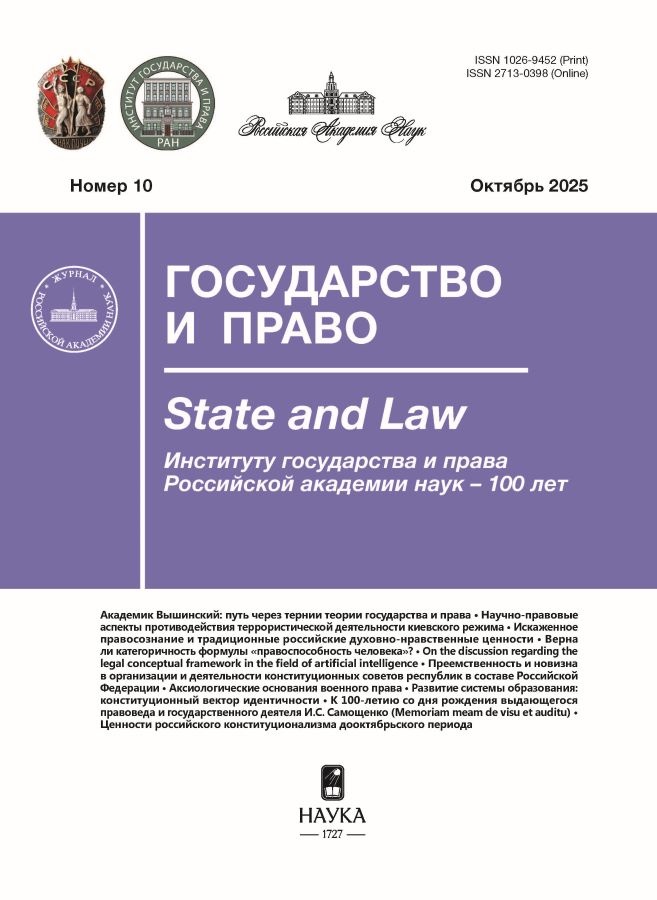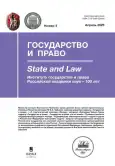Обеспечение занятости, производительного труда и социальная защита в условиях гибридных правовых режимов: междисциплинарный подход (обзор Международной научно-практической конференции)
- Авторы: Маликов С.В.1, Чуча С.Ю.1
-
Учреждения:
- Институт государства и права Российской академии наук
- Выпуск: № 4 (2025)
- Страницы: 209-216
- Раздел: Научная жизнь
- URL: https://vestnik.nvsu.ru/1026-9452/article/view/684936
- DOI: https://doi.org/10.31857/S1026945225040155
- ID: 684936
Цитировать
Полный текст
Аннотация
Статья содержит аналитический обзор докладов и выступлений участников Международной научно-практической конференции «Обеспечение занятости, производительного труда и социальная защита в условиях гибридных правовых режимов: междисциплинарный подход». Гибридное правоприменение в России проявляется в ускорении создания правил поведения посредством убыстрения процесса законотворчества, повышения роли Правительства РФ в процессе нормотворчества, усиления влияния актов Конституционного Суда РФ на процесс правоприменения, а также в расширении регионального нормотворчества и придании большей легитимности указаниям должностных лиц. Сформированные таким образом правовые режимы – направленный на противодействие распространению коронавируса, сопровождающий проведение специальной военной операции и др., являются гибридными – собранными из элементов разных правовых режимов. Причем для такой конструкции используются элементы ординарного и нормативно закрепленных особых (специальных) правовых режимов, подвергшиеся, однако, существенной трансформации. Гибридизация правовых режимов – объективная реакция государств на оригинальные глобальные процессы трансформации технологических, экономических, общественных и межгосударственных отношений, с высокой вероятностью обеспечивающая оптимальное правовое регулирование с минимально возможным временным ограничением прав граждан и организаций, позволяющим избежать тотального их нарушения системным применением особых (чрезвычайных, специальных) правовых режимов.
Полный текст
Об авторах
Сергей Владимирович Маликов
Институт государства и права Российской академии наук
Автор, ответственный за переписку.
Email: malikovsv@igpran.ru
доктор юридических наук, заместитель директора
Россия, ул. Знаменка, 10, Москва, 119019Сергей Юрьевич Чуча
Институт государства и права Российской академии наук
Email: chuchaigpan@gmail.com
доктор юридических наук, профессор, главный научный сотрудник сектора процессуального права
Россия, ул. Знаменка, 10, Москва, 119019Список литературы
Дополнительные файлы








